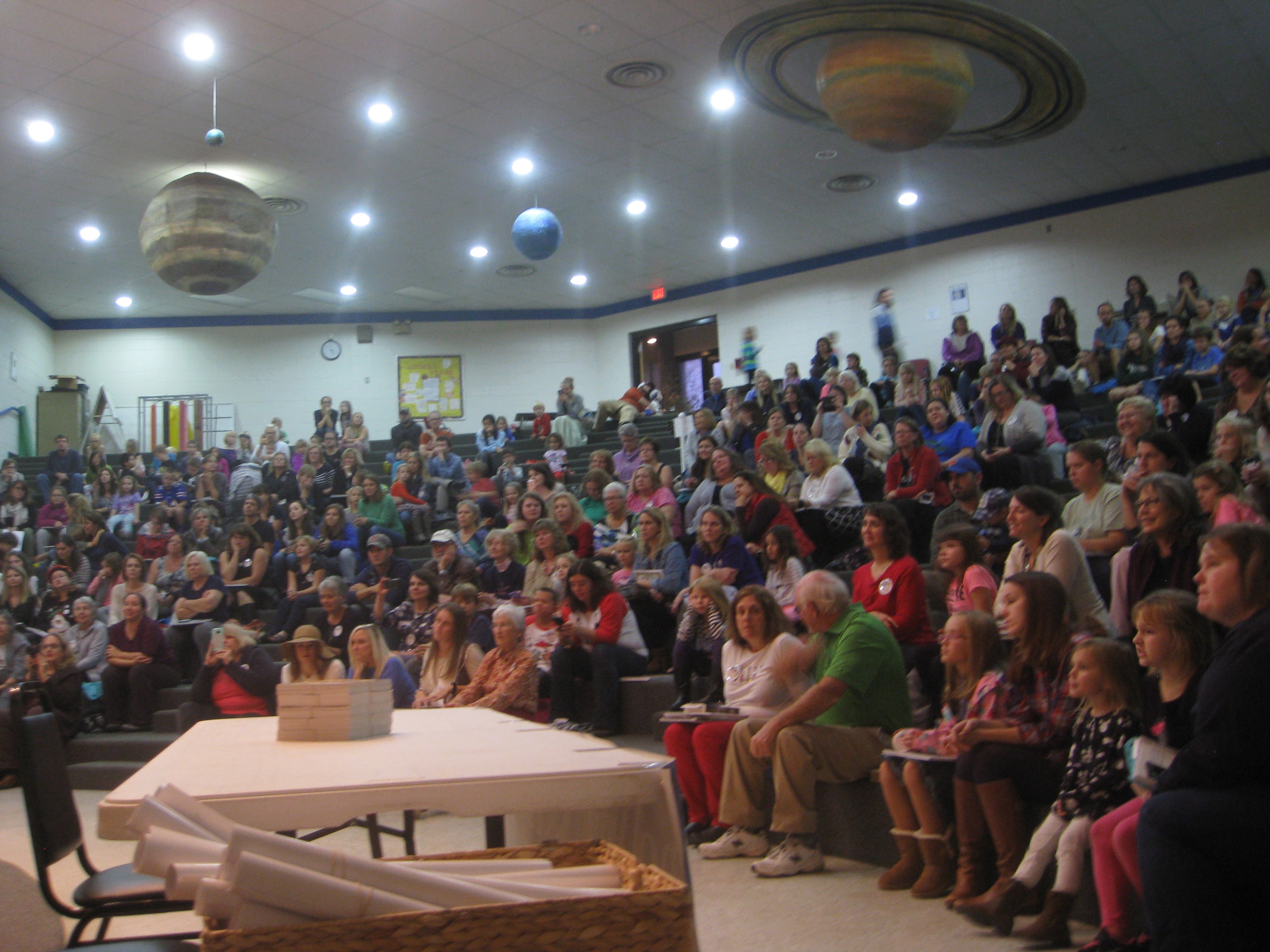 When’s the last time being rejected made you this happy? If you’re the person who schedules events at your bookstore, then it might have been one of those rare occasions when a publicist took the time to let you know that your store is not getting that author tour stop you requested. In fact, I’d like to thank the publicity department at Macmillan for being particularly responsive when it comes to letting us know if our store has not been chosen for inclusion on a tour. We’d always prefer a “yes,” of course, but having an answer one way or the other just makes our lives so much easier.
When’s the last time being rejected made you this happy? If you’re the person who schedules events at your bookstore, then it might have been one of those rare occasions when a publicist took the time to let you know that your store is not getting that author tour stop you requested. In fact, I’d like to thank the publicity department at Macmillan for being particularly responsive when it comes to letting us know if our store has not been chosen for inclusion on a tour. We’d always prefer a “yes,” of course, but having an answer one way or the other just makes our lives so much easier.
For readers unfamiliar with the fabled tour grid, here’s a brief outline of how the author tour happens, from the bookstore’s point of view.
For example, let’s say a publisher is putting out a new book by Frederick Douglass in September. (Someone really should, by the way. I hear he’s done an amazing job and is getting recognized more and more.) The publicity department wants to send him out on tour and so will include Frederick and his new book on a list of upcoming tours, also called an event grid, which is often shared on a spreadsheet or on Edelweiss (a platform that publishers use to share catalogs electronically with buyers at bookstores and libraries) several months before the book releases and the tour would start.
On the grid, we see a description of the forthcoming book, a pub date, and whatever information the publisher wishes to share in order to guide us, the bookstore staff, on how to craft a proposal. Maybe they want a combination of bookstore and school visits, or maybe they only plan to send the author to a few states in the Pacific Northwest, and so on.
Or maybe the publicist putting together the tour indicates on the grid that for this author they only want proposals for large (audience of 300+) ticketed public events. For almost every bookstore out there, that’s going to mean making arrangements with a local venue that can seat that many people before we can commit to hosting. We’ll typically reach out to one or two such venues about their availability for an event in this general time frame (September, in the example above), and they’ll pencil us in, just in case, and expect to hear back from us at some point. When we submit the proposal and never hear a peep about it either way, not only is the bookstore left hanging, wondering if we’re going to be putting on this big event that will affect what else we can commit to, but now we’re leaving one or more local venues hanging, too.
But even if we’re just sending a proposal for a simple, straightforward in-store event with an author, we’re constantly adding events large and small to our bookstore calendar and trying to balance what can happen when — author events, book club meetings, story times, birthday parties, and on and on. If we’ve sent a dozen proposals in the spring for author events that would happen in the month of September, we’re trying to keep those in mind as we schedule other possible events for September. Which is why a simple form letter email saying “Sorry, we can’t send Frederick Douglass to you on this tour” is actually a huge help!
In short, a simple and direct “no” is always much better than no reply at all. See also “ghosting,” or Things That Will Land You in Dating Hell.


Authors call this ‘black holes’ – when you send something out and never get a response. It’s all too common in the industry from top to bottom, I guess … starting from when you query agents and don’t get responses … (happened more than a few dozen times to me)
Sorry it extends all the way to the booksellers, too … 🙁
As a publisher, a book marketer and an author, I always wish to make the process of scheduling author events as easy and efficient as possible for stores and other venues, but I will admit that in the crush of everything that is involved in the pre-press, production, release and pre-release, this priority has had short shrift, and I imagine this is the case at many other publishing houses of all sizes.
So I’m cogitating on ways to improve this important aspect of booking author tours. Here are some ideas; feedback will be appreciated (I’ll check back in, in a day or two):
> Post a “decision date” so all requesting venues can know on that fate if they’ve been selected.
> Automate the “acknowledgment of application” and, using the decision date moted above, automate the confirmation and rejection notices.
> Create a co-op marketing plan that helps stores make deposits on meeting spaces.
> Offer more multi-author events, to ease the pain of last-minute cancellations. (Probably not helpful for big-name headliners)
> Post a proposed schedule for tours once the publication schedule is first drawn up, along with a way to gather names of interested stores and venues. Use this email list to keep interested parties informed of tour developments.
> Involve an event-arrangement agency as a central clearing house and facilitator, with instructions to minimize ambiguity among retailers and meeting halls.
> Establish a maximum reply period for us to decide on a request. Give it the same due as scheduling print runs with printers.
> Contact bookstore, school and venue event managers in advance of planning a tour, to better understand their needs and schedules. This needs to be careful to avoid favoritism and/or selective tailoring, so this may be a risky path for publishers.
> The Twain option: Arrange for the venue ourselves, then invite nearby bookstores to bid to be the sponsor. This will greatly reduce the period of ambiguity and release stores from tying up room schedules. Careful planning can allow the event to be moved to a store’s space.
> Work closer with stores to schedule publication dates that fit the retailer’s schedules more easily.
> Plan author tours as far in advance as possible, so that those stores whose bids are rejected can recover their schedules with more options.
> Conversely, offer last-minute solutions to filling holes in the schedule caused by cancellations and rejections, even on an “author stand-by” basis.
> Another concept is a first-second-third choice bidding system to bring in different authors.
> For events requiring considerable planning, paid reservations and staffing, use a first-to-bid criteria, with immediate notice once the bid is accepted. This might require a validation process that is overly burdensome to bookseller as well as publisher and promoting agent.
Those are the ideas I have. Would love to hear everyone’s thoughts on these, and any other ideas that might work.
David Rozansky
Publisher
Flying Pen Press
The Frederick Douglass part….laughing SO HARD!!
Amen, Leslie. Fewer pricey author dinners at shows, more responsiveness from Publicity. Not that I haven’t enjoyed those dinners! Here’s to the editors and publishers and publicists who can maintain the discipline to process the decisions in a clear and timely fashion. Is there any reason decisions can’t be made in, say, 90 days from the time the grids are posted?
I absolutely agree and appreciate how many details they have to deal with scheduling these tours. Confirming venues, flights, hotels, ground transportation… Enough to make the average person’s head spin! But yes, even knowing that if we haven’t heard in a certain amount of time that the answer is “no” would be helpful.